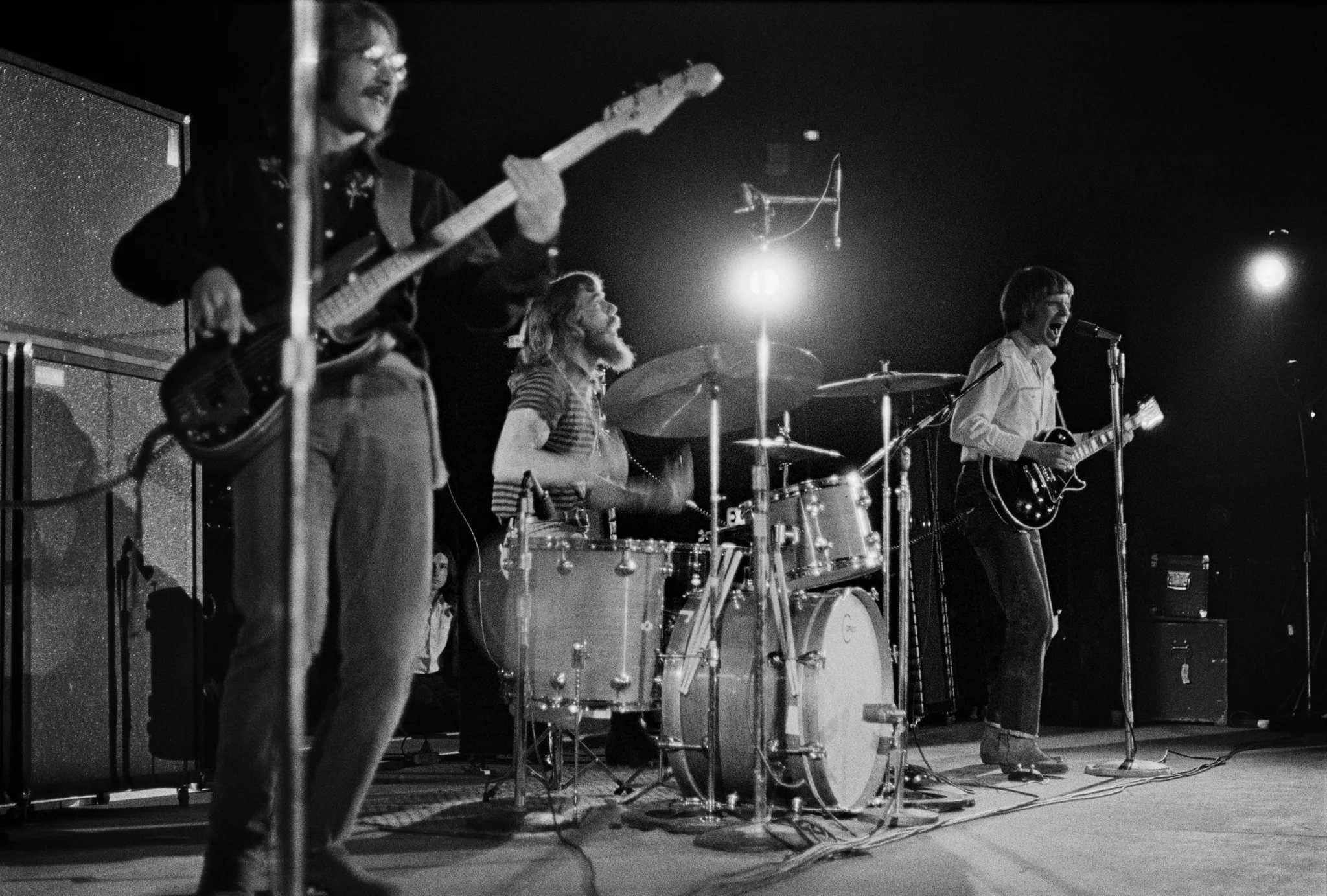
“Penthouse Pauper” is CCR’s grim little truth-teller—proof that you can live high above the city and still be spiritually broke, hungry, and alone.
There’s a certain kind of song that doesn’t ask for your attention—it grabs it, by the collar, with a riff that feels like work boots on concrete. “Penthouse Pauper” by Creedence Clearwater Revival is exactly that kind of track: lean, loud, and morally impatient. It doesn’t float on nostalgia the way some CCR classics do. It stares back. And once you let it in, it has an odd way of lingering, because its target—empty status, expensive loneliness, the constant hunger for “more”—never really goes out of fashion.
Let’s pin down the facts first, cleanly, because this song is often mis-filed in memory. “Penthouse Pauper” is not on Green River. It is an album cut on Bayou Country, CCR’s second studio album, released by Fantasy Records on January 15, 1969. On the LP’s running order, it sits on Side Two—following “Good Golly, Miss Molly” and leading into “Proud Mary”—a placement that matters, because it frames the song as a hard-edged jolt right before the band’s most famous “river” hymn arrives.
Chart-wise, here’s the honest picture: “Penthouse Pauper” itself did not chart as a single. The album did—Bayou Country reached No. 7 on the Billboard 200—and it generated the breakthrough that pushed CCR from promising to undeniable: “Proud Mary” (released as a single in January 1969) peaked at No. 2 on the Billboard Hot 100 in March 1969. In other words, “Penthouse Pauper” rode into homes and cars on the strength of an album people were buying for the hits—then stayed in the room because it had teeth.
The song is credited to John Fogerty, and that authorship is audible. Fogerty had a rare talent for writing characters quickly—sketching a whole life in a few lines—without sounding like he was preaching from a podium. “Penthouse Pauper” is a title that already contains its own accusation: the idea that someone can occupy the penthouse—the highest rung, the best view, the “winning” address—and still be a pauper where it actually counts. Not money-poor. Meaning-poor. Connection-poor. Soul-poor.
Musically, the track leans into a twelve-bar-blues backbone and drives it with that unmistakable CCR economy: no decorative excess, no psychedelic fog, no wandering solos that forget why they began. It’s a tight, muscular performance where the guitar bites and the rhythm section keeps moving like a machine that doesn’t care how you feel. That mechanical insistence is part of the point. The groove doesn’t “liberate” you—it presses you forward, the way appetite presses, the way status anxiety presses, the way a life built on appearances keeps demanding new sacrifices.
And then there’s the emotional aftertaste. The song doesn’t merely criticize wealth; it criticizes emptiness—the kind that can grow in a room with expensive furniture and no warmth. It’s the sound of someone looking at a polished life and seeing the cracks: the isolation, the paranoia, the smallness that sometimes hides behind grand views. In that sense, “Penthouse Pauper” is less a protest song than a moral snapshot—an old American warning dressed in electric blues.
The timing matters, too. Bayou Country was recorded at RCA Studios in Los Angeles after the band’s initial breakthrough, right as CCR were beginning that astonishing 1969–1970 run when their songs seemed to arrive one after another like headlines. But while the world was getting louder and more theatrical, CCR kept choosing clarity. “Penthouse Pauper” is clarity with grit under its fingernails.
If you listen to the album as a whole, the sequence becomes almost cinematic: you pass through the raucous cover of “Good Golly, Miss Molly,” then hit “Penthouse Pauper”—a darker room, a tougher stare—and only after that does “Proud Mary” open the window and let the river air in. It’s as if the record insists you face the hollowness of “having it all” before it offers the dream of escape.
That’s why “Penthouse Pauper” still works. It doesn’t belong to one year. It belongs to every era that confuses height with happiness. And in that blunt, driving groove, Creedence Clearwater Revival leave you with a thought that feels uncomfortably timeless: you can rise as high as you like—yet if you’ve traded away what makes life human, the view won’t save you.